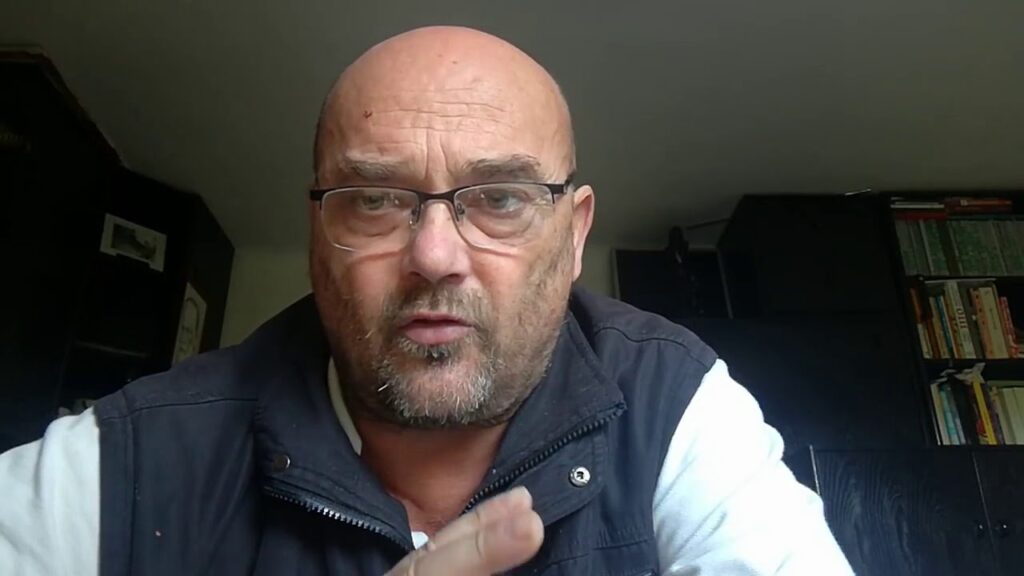The Slovene Association of Patriotic Journalists expressed its great concern about “the punishment from the police to Roman Vodeb for the words he allegedly used to insult the Speaker of the National Assembly.” They consider that the interference of a repressive authority in freedom of speech is a greater threat to a democratic state than any offensive statements made about representatives of the authorities.
The Slovene Association of Patriotic Journalists (Slovensko združenje domoljubnih novinarjev – SZDN) reacted with concern to the news that Roman Vodeb, a frequent commentator on the TV3 programme Faktor, had been fined 250.38 euros for allegedly being rude and insulting to the Speaker of the National Assembly, Urška Klakočar Zupančič.
The Association believes that Urška Klakočar Zupančič has every right to take legal action if she considers the statements to be offensive, but also they also believe that “it is generally accepted that public officials and politicians who are absolutely exposed public figures (especially Mrs Klakočar Zupančič as the Speaker of the representative body of the legislature) have a higher threshold of tolerance for words spoken at their expense or against them.”
This is about intimidating those who are critical of the authorities
Situations in which an offended person initiates civil proceedings for defamation in court are not new, they say. What they consider “outrageous” is the fact that Mr Vodeb was fined by the police on the basis of the Protection of Public Order Act, and they believe that this is “intimidation of Mr Vodeb and of all future potential critics, not only of Ms Urška Klakočar Zupančič, but of the entire current power structure. This cold shower today, which has hit not only Mr Vodeb but also all critical and thinking people (including journalists and editors), shows that Slovenia is becoming a police state, where the police are using the legislature on public law and order to intimidate and threaten critics of the highest representatives of the legislature,” they wrote, adding that this is “a direct attack on freedom of speech and freedom in general.”
They also pointed out that a greater threat to a free and democratic society is posed by the interference of a repressive authority in freedom of expression than by a potentially offensive statement by a commentator to a representative of the authorities. They agree that some of Vodeb’s statements were either upsetting, shocking or even disgusting to the public, but they cited the words of the constitutional lawyer Andraž Teršek, who wrote a few years ago that “such isolated cases of indecent or ethically reprehensible public expression (with the exception of disgust and offence) do not lead to serious consequences. Not because such expression is good, but because at the heart of the constitutional protection of freedom of expression is precisely such – offensive, upsetting and shocking – expression.”
The Slovene Association of Patriotic Journalists: This is the ideology of helicopter protection of power, which is only possible in a totalitarian state
“Unfortunately, in Slovenia, the philosophy of free speech is giving way to the philosophy of hate speech. The prevailing opinion is that a society must serve groups that are supposed to be marginalised and stigmatised,” warned the Association, explaining that this concept is being extended to the current government, which, they say, “clearly feels itself to be a stigmatised group and is therefore clearly one of the groups meant to be protected by the police in the event of any shocking and upsetting words (such as those used by Mr Roman Vodeb) – by fining the person who uttered words that were unpleasant and unsavoury to the authorities. ” They added that “when you stipulate that you can speak about a group only and exactly in the way the people who have usurped the monopoly on deciding what is appropriate and what is not, we can certainly no longer talk about freedom of speech, nor about the rule of law. This is the ideology of helicopter protection of power, which is only possible in a police or totalitarian state.”
Tanja Brkić


